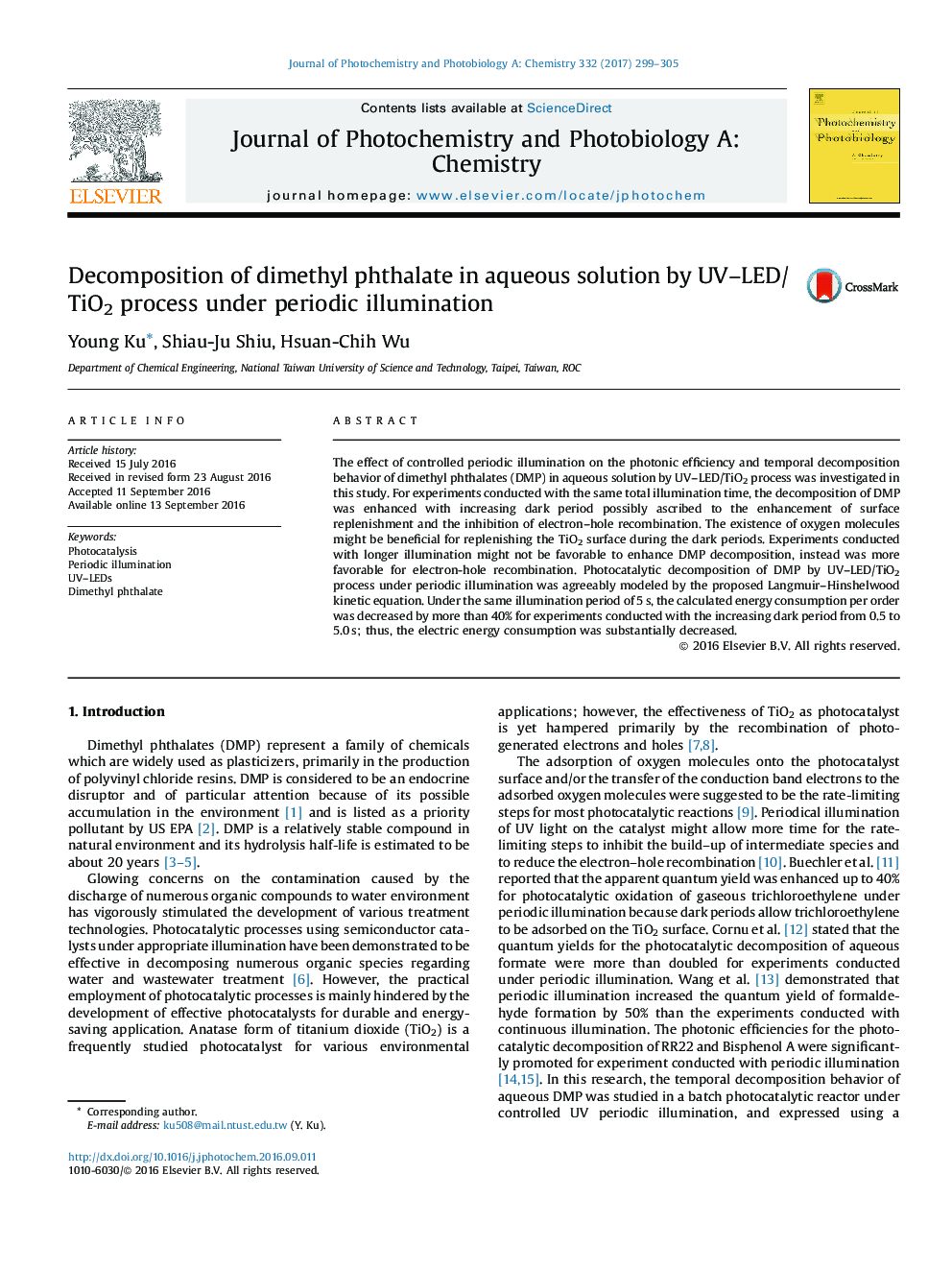| Article ID | Journal | Published Year | Pages | File Type |
|---|---|---|---|---|
| 4754223 | Journal of Photochemistry and Photobiology A: Chemistry | 2017 | 7 Pages |
Abstract
The effect of controlled periodic illumination on the photonic efficiency and temporal decomposition behavior of dimethyl phthalates (DMP) in aqueous solution by UV-LED/TiO2 process was investigated in this study. For experiments conducted with the same total illumination time, the decomposition of DMP was enhanced with increasing dark period possibly ascribed to the enhancement of surface replenishment and the inhibition of electron-hole recombination. The existence of oxygen molecules might be beneficial for replenishing the TiO2 surface during the dark periods. Experiments conducted with longer illumination might not be favorable to enhance DMP decomposition, instead was more favorable for electron-hole recombination. Photocatalytic decomposition of DMP by UV-LED/TiO2 process under periodic illumination was agreeably modeled by the proposed Langmuir-Hinshelwood kinetic equation. Under the same illumination period of 5Â s, the calculated energy consumption per order was decreased by more than 40% for experiments conducted with the increasing dark period from 0.5 to 5.0Â s; thus, the electric energy consumption was substantially decreased.
Related Topics
Physical Sciences and Engineering
Chemical Engineering
Bioengineering
Authors
Young Ku, Shiau-Ju Shiu, Hsuan-Chih Wu,
